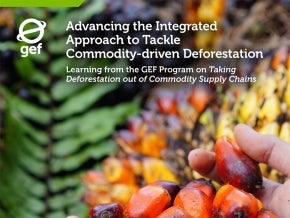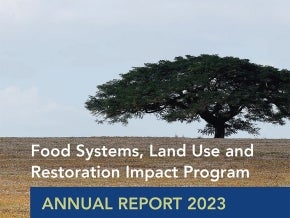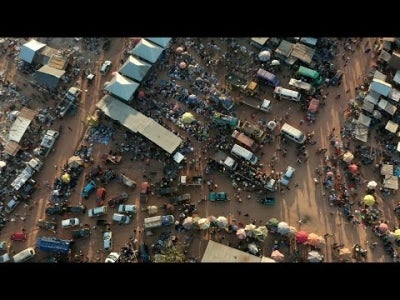
India will host the next global Conference on desertification, land degradation and drought from 7 to 18 October 2019 at the Vigyan Bhavan conference centre in New Delhi. Participants from 197 Parties to the United Nations Convention to Combat Desertification (UNCCD) will have access, for the first time, to a wealth of vital new scientific data. They will have access to Earth Observation data on the trends in land degradation dating from 2000, gathered from 120 of the 169 countries affected by desertification. They will also receive the first report on desertification and climate change prepared by the Intergovernmental Panel on Climate Change (IPCC), the global authority on climate change.
Drawing on this data, the participants attending the fourteenth session of the Conference of the Parties (COP14) to the UNCCD can assess trends in land degradation, desertification and drought more accurately. They will also be in a position to identify associated threats and risks to enable the international community to agree on the best solutions and actions to take over the next 10 years.
“India is one of the countries affected by desertification, and is facing new challenges, among which are recurrent droughts and dust and sand storms. The country has tremendous potential to turn these challenges into opportunities through improved land use and management, and to provide the leadership the world needs to take bold actions,” says Monique Barbut, the Executive Secretary of UNCCD.
“India recognizes land rehabilitation as a cost-effective investment that can accelerate the transition to sustainable development globally. With India’s leadership, the international effort towards achieving land degradation neutrality could take huge strides forward. As it assumes the COP Presidency, the Convention’s 197 Parties can create the environment we need for innovative and ingenious solutions to our common goals,” Barbut added.
India’s population is projected to reach 1.7 billion by 2050, and the country was one of the first to commit to the 2030 Sustainable Development Goal target of achieving land degradation neutrality (LDN).
LDN is the Sustainable Development Goals’ target aiming to halt the degradation of land by taking three concrete actions. Countries promised to avoid, reduce and reverse land degradation, in that order of priority. Achieving land degradation neutrality can help vulnerable populations to improve their livelihoods, and communities all over the world can strengthen their resilience, especially to natural disasters linked to climate change.
Ahead of COP14, government representatives will gather for a preparatory meeting from 28-30 January in Georgetown, Guyana, for the seventeenth session of the Committee for the Review of the Implementation of the UNCCD (CRIC 17). CRIC 17 will take stock of results of the first global assessment of land degradation, based on Earth observation data reported by governments, and agree on most of the recommendations that COP14 will consider.
The Conference of the Parties was established by the Convention as the supreme decision-making body that today consists of 197 governments and a regional economic integration organization. The Parties have met every two years since 2001 to review progress in the implementation of the Convention. The last Conference of Parties, hosted by the Government of China, was held in October 2017 in Ordos, Inner Mongolia.
The story was originaly published by UNCCD.


